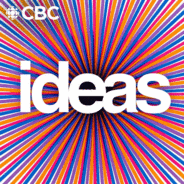Handel’s Messiah is one of the best-loved pieces of Christmas music. Only it was meant for Easter. But it draws on far more from the Old Testament than the New. There are more surprising facts about this 18th-century masterpiece that IDEAS explores with Ivars Taurins, founding director of the Tafelmusik Chamber Choir who has conducted Messiah over 200 times, and veteran CBC Radio broadcaster Robert Harris. In nine movements, they reveal the hidden treasures of Handel’s celebrated work. *This episode originally aired in 2015.

Kultur & GesellschaftPolitik
Ideas Folgen
IDEAS is a place for people who like to think. If you value deep conversation and unexpected reveals, this show is for you. From the roots and rise of authoritarianism to near-death experiences to the history of toilets, no topic is off-limits. Hosted by Nahlah Ayed, we’re home to immersive documentaries and fascinating interviews with some of the most consequential thinkers of our time.With an award-winning team, our podcast has proud roots in its 60-year history with CBC Radio, exploring the IDEAS that make us who we are. New episodes drop Monday through Friday at 5pm ET.
Folgen von Ideas
240 Folgen
-
Folge vom 24.12.2025Revealing facts about the Christmas song meant for Easter
-
Folge vom 23.12.2025An apocalyptic retelling of the Christmas storyThe nativity story that Christians believe is that God took the form of a baby named Jesus who was born to save the world and bring about an enduring peace. So what happened? Did we miss it? And what happens next? These are questions Trappist monk Thomas Merton grappled with in his own meditation on the Christmas story. His version "The Time of The End is the Time of No Room" was published in 1966. At the time he called it a sober statement about the climate of our time, a time of finality and fulfillment.
-
Folge vom 22.12.2025Where to find 'critical hope' in hard timesIn an era of political polarization and fatigue from ongoing crises, hope is critical. But it's not something you have; it's something you do, argues education scholar Kari Grain. "Critical hope" in action is not just the belief that transformation is possible — it's necessary. In her book, she explores seven principles for practicing hope that confront toxic positivity, social injustices, and gives anger and grief a seat at the table.Kari Grain is a professor at the University of British Columbia in the Faculty of Education, where she leads the Masters program in Adult Learning and Global Change Program. She delivered the University of Prince Edward Island’s 2025 Shannon K Murray Lecture on Hope and the Academy.
-
Folge vom 19.12.2025Why spirituality is central to Indigenous mathematicsIndigenous math isn't just about numbers and equations, it involves culture, spirituality and more. Math professor Edward Doolittle, a Mohawk from Six Nations in Ontario, sees math as something embedded in Creation itself. In his Hagey Lecture at the University of Waterloo, he describes Indigenous mathematics as being grounded in cognition, emotion, the physical world and community. Indigenizing math, Doolittle hopes, will make it more approachable and meaningful to Indigenous students — show them how entwined it is with everyday life and something much bigger than ourselves.
